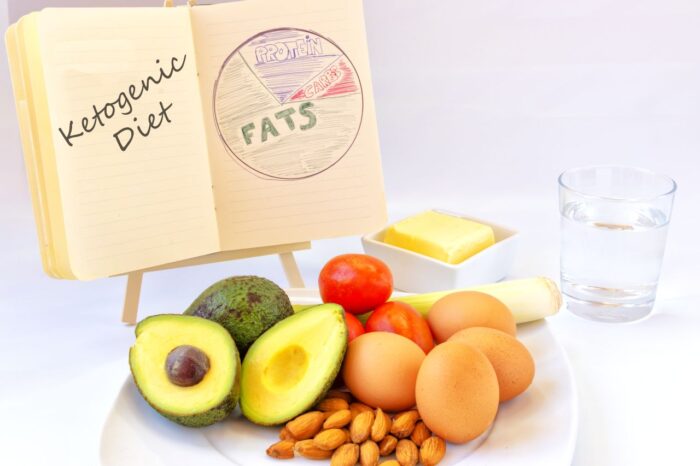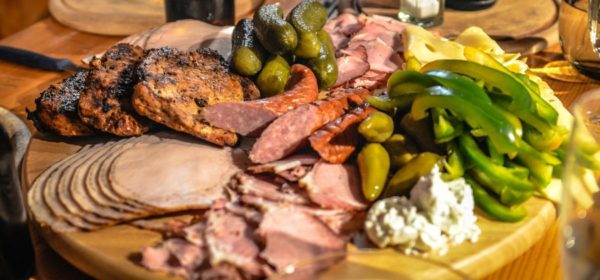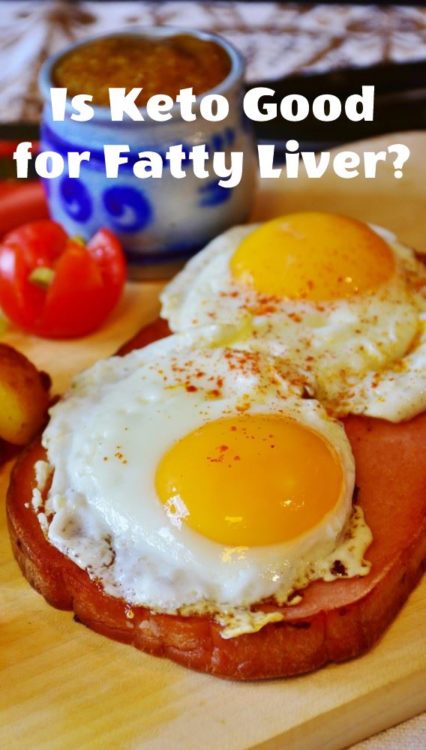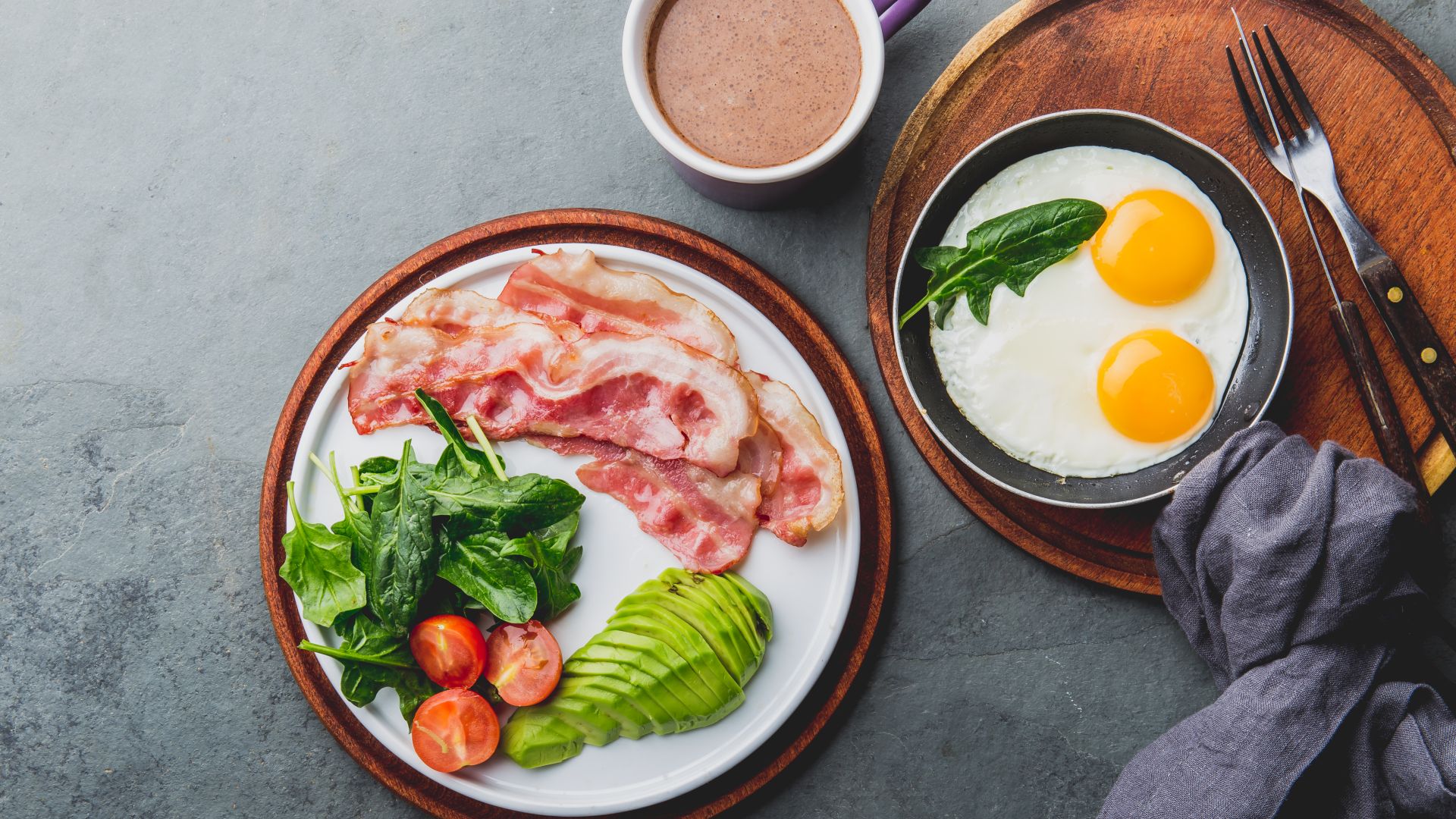The good news about fatty liver disease is that there are multiple dietary approaches that work and are capable of reversing it.
From my personally tested and approved Mediterranean diet, to Paleo and all sorts of other combinations, you do have options when it comes to what to eat. But is the ketogenic diet also a good choice for reversing fatty liver disease?
If you are to listen to some various health and nutrition experts, as well as plenty of supporters of this diet, you would learn that keto is indeed a great option for reversing NAFLD aka MASLD.
However, I have a different opinion. Since I managed to reverse my fatty liver and I’ve been researching fatty liver disease since 2014 when I was diagnosed, you might want to hear me out.
Experts weight in on the Keto Diet and Fatty Liver Disease

The ketogenic diet is one that massively limits carbohydrate consumption, claiming to turn the body into a full fat-burning machine as a result, since the body starts burning fat for the energy it used to get from the now extremely limited amount of carbs.
There is proof of massive weight loss from those following this diet and entering the ketosis state, when the liver starts producing huge amounts of ketones, which are a chemical compound that breaks down fat into energy.
While this does sound promising – after all, burning fat is exactly what our sick livers need, things are not perfect overall.
Entering ketosis isn’t as fun as some claim to be. Apart from potential inconveniences like bad breath, insomnia and fatigue, we have more potential health problems that could result from it.
The UChicago Medicine website mentions additional risks, such as low blood pressure and increased chances of heart disease, nutrient deficiencies and kidney stones.
Additionally, the Harvard Medical School warns that following a Ketogenic diet could actually cause liver problems. The reasoning is that since the liver has so much fat to metabolize, it could make any existing liver conditions worse.
And this is exactly what you don’t want to do. Sure – you might start losing weight early on, but the impact this insanely strict weight loss program has on your liver might not be easily seen.
After all, this diet is constantly ranked as one of the worst (usually THE worst) diets in the world based on health experts writing for US News.
Why is Keto so popular, then?

Unlike most diets out there, the ketogenic diet seems easy to follow. Many people either promote it or believe it to be eating bacon all day. And everybody loves bacon.
The truth is very far from that. It’s true, a keto diet or ketogenic diet is one where you eat close to zero carbohydrates (coming from sugars – both natural and not) and force the body to burn fat in order to provide energy, while also consuming larger amounts of fat.
But this doesn’t mean that you will be gobbling up pounds of bacon like there’s no tomorrow.
There are still strict guidelines that one should follow and even though the amounts of fat and protein are huge compared to a regular diet, there are still plenty of restrictions.
But you will still eat some very tasty meals: you can have all sorts of natural fatty foods and fats (like butter and oils), red meat, fish, cheese, eggs, but also many vegetables that are low in carbs.
Basically, you can eat anything you please as long as you keep your fat / protein and carbs intake under control. The biggest challenge: consuming less than 20 grams of carbs per day (which is pretty difficult).
Take a banana as an example: eating one per day results in you consuming 23 grams of carbs, so you would already be over the limit!
While this makes it easier for those who don’t have a sweet tooth, even them will soon find it too restrictive. And judging by all the expert claims on its risks, too dangerous.
Keto diet and fatty liver: my opinion

As I mentioned before, my personal opinion is that a keto diet is not one that you should follow if you have MASLD aka fatty liver disease.
The main reason why I claim this is that you have to eat a LOT of fat when following this diet, ignoring fruits and many vegetables almost completely and, with them, the benefits and nutrients they provide our body.
If you follow the ketogenic diet, about 75% of your caloric intake should be from fat, which means that if you’re eating the average 2,000 calories per day which are considered the norm nowadays for adults, you should be feeding your body with around 150 grams of fat each day.
That number is HUGE, having in mind that the recommended fat intake for a 2,000 calories per day diet with a balanced meal plan is between 44 to 78 grams per day (source).
So when on Keto, you would be eating up to 3 times more fat than it’s recommended. And we’re not even taking the saturated fat in account (which is the unhealthy type of fat in most fatty foods – including bacon).
A fatty liver is exactly what the name suggests: tons of extra fat stored in the liver. So feeding it even more fat – 3 times more than the regular person should eat at maximum – doesn’t sound like a good idea now, does it?
You’re already putting a lot of extra, unnecessary pressure on your liver who has to produce those ketones to process the extra fat.
Plus, even though eating fatty foods might sound appealing at first, you will see that limiting yourself to 20 grams of carbs per day takes out a lot of delicious things off the menu.
Not to mention the fact that our bodies are not made to eat such small amounts of carbs. Yes, excess carbs and sugars are bad for your health and especially for the liver – but getting to the other extreme might be just as dangerous.
It is even more so if you are not used to dieting, since you will basically not be allowed to eat anything sweet – not even in your coffee or tea and you’ll have almost zero options when it comes to satisfying your sweet tooth.
So for somebody who used to eat a lot of sweets – or even moderate amounts – following the ketogenic diet is extremely difficult and it has greater chances of turning into dieting fatigue fast and resulting in you crashing and giving up, losing all progress and doing more harm than good.
But even if you would follow the ideal recommendations and eat exactly what you should following the ketogenic diet… I still have my doubts that it would be good for a liver that is already under pressure.
This is an extreme diet that puts a lot of pressure on one’s body. Change is good and it is what you need to reverse fatty liver… but you need the right type of change.
Since your liver is already under a lot of stress, probably enlarged due to the accumulated fats in the liver – and already has too much fat stored inside, going for such an extreme diet is dangerous in my opinion.
I am getting a lot of hate from supporters of the ketogenic diet for writing this article, but I don’t care.
My main goal is to help those who have a fatty liver reverse it – even if it’s not extremely pleasant and even if that means cutting bacon, full fat dairy including full fat cheese and everything fatty from your meal plans.

So please, if you consider following the keto diet to reverse your fatty liver, think again and do serious research before you make a decision.
What alternatives do you have, then?

Keto is attractive because it allows you to eat delicious foods that other diets don’t, but I wouldn’t hurry to follow it. Anything that sounds too good to be true usually is.
I would personally never follow a keto diet because I consider it too extreme, nor would I try any diet that is similarly extreme… but if you think it is something you could do, give yourself some time first and let your fatty liver heal before going to such extremes.
A balanced diet is what every expert recommends when it comes to fatty liver reversal and I personally managed to reverse mine by following this slightly modified Mediterranean Diet.
The article of the healthiest diets that I linked to above actually ranks the Mediterranean Diet constantly in the top 3 diets in the world (usually at #1). So again, it’s not just me claiming that it’s healthy, but plenty of other health experts and nutritionists.
I know many people from our Fatty Liver Support group on Facebook which managed to reverse their fatty liver following the Mediterranean diet or versions of it, where balance is key – as well as nutrients coming from all sources, including meat, fat, fruits and vegetables.
By eating healthy and balanced meals – with some carbs, some fat, some protein and so on – you give your body everything that it needs to run as it should.
It is true that carbs should be kept to a minimum when suffering from a fatty liver because they are turned into fat and are generally considered the main cause for NAFLD /MASLD, but forcing your already sick body to follow a really extreme diet from the start doesn’t sound like the best idea.
If you really want to follow the ketogenic diet, prepare your body for it first. If you have just been diagnosed with a fatty liver, you will have to greatly reduce your carb intake (and fat intake in my opinion), so just do that first and get used to reducing carbs to a minimum for a few months.
During this time, if you combine a balanced diet with exercise, you will lose a lot of weight and you’ll already start getting your liver healthy.
A healthier liver will handle the switch to the difficult keto diet better – and since you’re already used to eating fewer carbs than you would, it won’t be as difficult for you.
To further underline how difficult a keto diet is to follow, you can check this article on Reader’s Digest to see why most people FAIL to follow it.
Final words
You know now my opinion – as well as the opinion of health experts – when it comes to following a ketogenic diet for reversing fatty liver disease.
I will always support the idea that balance and moderation are the keys to success so eating healthy, clean, exercising and balancing nutritious foods has a much better effect on our overall health.
I know that the promise of being able to follow a diet that allows you to eat all that delicious goop – bacon, butter, cheese and fried eggs among many other things – sounds too good to ignore, but if it sounds too good to be true, maybe that’s because it actually is.
Don’t take my word and all the evidence that I have linked to, though – do further research, but make sure that you do so from trustworthy websites or places that are actually backed up by medical data, not “friends of friends” who got better eating nothing but bacon fried in butter each day.
(Yes, I am exaggerating here, but you get the idea! Stay healthy and make sure you always make educated choices, after you research all the Pros and Cons).

I was diagnosed with a fatty liver back in 2014 and managed to reverse it by mid-2015. Since then, I’ve been studying it, continuously updating my knowledge with the latest scientific findings and practical approaches to give others the help they need to reverse their condition.
My approach to managing fatty liver is holistic, balancing scientifically-backed information with real-life, practical advice based on personal, direct experience.
I am also the admin of the Fatty Liver Support Group on Facebook and the Fatty Liver Subreddit.


Thank you for this. I see many posts about how keto can help fatty liver, and although it sounds really tempting to try, it doesn’t make much sense to me to eat more fat when fat is the problem in the first place. I asked my nutritionist about this and she did not recommend keto for me as it is very hard on your liver if you have fatty liver. She told me diets like this are too extreme for my body and should stick to a balanced, healthier diet and exercise.
Yes, I completely agree with this. Excessive fats are really bad – but so are carbs (which also turn into fat). Balance is key!
I’d suggest to rethink KETO, as you do not NEED to get 80% of the calories from fat. That is a common mistake that leaves people with bad results since they force fat into their system. I see countless posts on the FB groups for KETO about “Why am I not losing… I am eating my fat…”. It’s also considered a WOE “way of eating” and not a diet, since it is something people stick to for good in most cases. Drop reader’s digest and check out all the success stories on FB groups. Add in some Intermittent Fasting and you can really make healthy changes quite easily.
For best results, first target and hit your ratio of protein. This is the most important factor for weight loss and is the only true target to meet in terms of % of calories. Use a good calculator to find macros for your goals (https://ketogains.com/ketogains-calculator/). The next key is to reduce carbs (most strict is < 20g a day of ALL carbs, not net, more common is 20g net, or only counting carbs from sugar/starches and not green veggies). You then balance the remainder of desired calories (5-15% deficit to lose weight) with healthy fats – not carbs. You want your body to burn stored fat while in a ketogenic state, not all the excess fat in your food.
I hope this does not come across as preaching – I only mean to help provide a perspective after making mistakes with KETO over the years. You can also combine the med & paleo style diets with KETO for specific needs or desires (me for heart and cholesterol issues). Check out PSMF diet to see the extreme side used for bariatric patients prior to surgery for rapid weight loss, which further emphasizes the protein need.
Just found this website and am very impressed with all the material here.
At the core of not only fatty liver but fatty anything is to get the body to change over to burning fat, like our ancestors had done. Somehow those of us with fatty liver must guide our bodies into burning fat as the primary source of energy. I believe that a varied approach is probably best. Keto may be too extreme at first, so I would slowly begin a changeover (this may also avoid “keto flu”).
Trouble is, those of us who are older and have been eating high carbs since childhood (our parents had no way of knowing how bad that really was for us) seem to have the hardest time of it. Out bodies have simply gotten used to this type of fuel and as one gets older the bad results begin to manifest themselves. Younger folks should begin thinking about these newer ways of eating. I’m trying my best but it is really difficult.
Keto has been used for over 100 years to aid in treating brain disorders and is now being looked at for other conditions as well, especially neurological. It is becoming less of a fad and more of a stable way of eating for many who are reaping its benefits. I know I just can’t jump into it; rather I am going to try and ease myself gently. It is my belief that whatever one eats, fasting is an integral and important part, especially when it comes to weight loss.
Finally, I’ve watched the show regarding the 600 lb. people and always wondered how they could lose all that weight before they could have the surgery. Especially since they were so heavy they could barely move yet would drop 50 or more lbs. Thanks for providing that information.
You sound like someone giving plumbing advise without ever having fixed a toilet. Because of the existence of Donald Trump, this isn’t the most ridiculous thing I’ve seen in a while.
As I keep saying, I don’t have to shoot myself in the foot to be able to safely say that nobody should try that because it’s painful. I don’t have to torture my body for several months with this diet to find out what is already obvious: excess fats are NOT safe for fatty liver.
Of course, this is just my opinion and everybody is free to do as they please. It’s your choice and your health and you are the one who decides what should be done next.
You have absolutely no business publishing an article over something you didn’t even bother to research. You didn’t even attempt to try & back your opinion up with scientific reasoning. As stated above, its 70% fats & that’s not always the case once you become fat adapted. Guess what protein can be converted into? Also, their are all natural sugar substituted as well as a multitude of alternatives for sweets & almost every dish you can think of. Just because you obviously don’t have the discipline & determination for this way of eating doesn’t mean that you should preach your uneducated views.
The reason why I am against this diet is not the lack of variety or sweet tooth satisfaction, but the fact that I consider it to be inappropriate for people suffering of a fatty liver.
But, you don’t have any REAL medical info to back this up! Your percentages are off and no one has to be “extreme” to benefit from this. One of two doctors who don’t think anyone should do this don’t really matter. A keto diet can be modified to fit anyone’s needs. It can be bumped up or toned down. It’s not written in stone! The Mediterranean Diet is very good. That is true. But, Keto can be, also! I understand this is your opinion, but that is how false information spreads! Lack of research, stating opinions and gullible people take that as gospel! Do your research first, then state your opinion!
The internet is already too full of superficial opinionated articles like this one, written by people who are not experts on a particular matter. We don’t need yet another article like this one clogging up our Google search results and making it harder to find the proper information that we need, which can often be difficult enough. I was looking to hear from people who have actually tried this or who have researched the scientific literature. Thanks for wasting my time.
Just found this article… I agree with some of the previous comments that there is not a lot of facts backing up the opinions.
The idea that vegetables are ignored is completely off. Maybe you are thinking of the original Atkins? (I THINK I had read that that diet has been updated with more veggies and I also THINK that was never intended as a permanent diet)
Vegetables are super important on a REAL Keto diet (or even just a healthful diet)- lots of fiber and vitamins and minerals, low calories, fiber etc.
Fat doesn’t make you fat or dump fat into your blood. Bad Carbs are to blame and have been all along. This is proven, multiple peer reviewed research studies are available. (Not articles written about studies, they can be biased and incomplete)
Best to all!